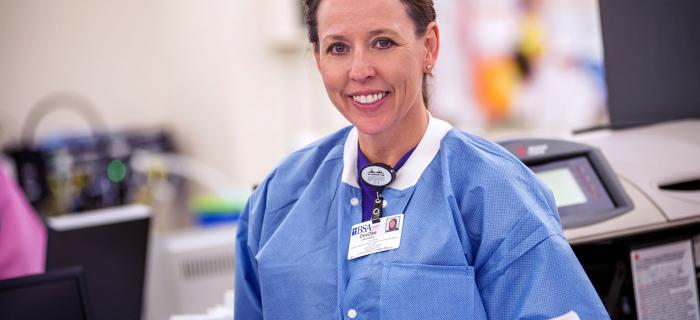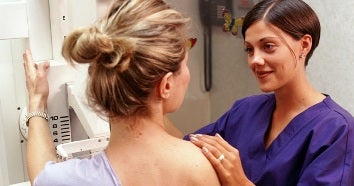High Risk Program

Learn Your Personal Risk Factors
The Harrington Breast Center's High Risk Program is a unique program that offers comprehensive risk assessment, education about risk reduction and specialized tools for earlier detection.
You may be at higher risk of developing breast cancer if you have...
- a family member who was diagnosed with breast cancer before age 50.
- several family members who were diagnosed with breast cancer and/or ovarian, prostate and pancreatic cancer.
- someone in your family tested positive for a known breast cancer mutation such as BRCA 1 or 2, or PTEN (Cowden's Syndrome).
- had atypical cells detected during a breast biopsy.
- had chest mantle radiation for lymphoma.
- a previous history of breast cancer.
- a male relative with breast cancer.
- Ashkenazi Jewish ancestry.
Getting Started...
You may self-refer or your physician may refer you for a risk assessment. Contact Harrington's High Risk Breast Nurse at (806) 212-0634. When you call, our High Risk will briefly review your history with you over the phone to determine if you might benefit from a risk assessment consultation.
Consultation
At the consultation, the High Risk Breast Nurse will discuss your family history in greater detail. You will need to be prepared with information about relatives such as that type of cancer and age diagnosed. If possible, bring with you the pathology reports of family members diagnosed with breast or ovarian cancer. If imaging was done at a facility other than HBC, please bring the actual films of your most recent mammogram.
At the conclusion of your consultation, you may wish to enter the High Risk Program, where you and Harrington's team of breast specialists will work together to develop an individualized plan of care to reduce risk factors and ensure earlier detection.
Program Components:
- Consultation with our High Risk Breast Nurse
- Genetic counseling and testing (BRCA) as indicated
- Clinical breast exam
- Breast pathology review
- Surgical and pharmacologic risk reduction strategies
- Mammography studies
- Breast MRI
- Ongoing cancer surveillance
- Individualized plan of care
To learn more, please contact Harrington's High Risk Breast Specialist at (806) 212-0634.

